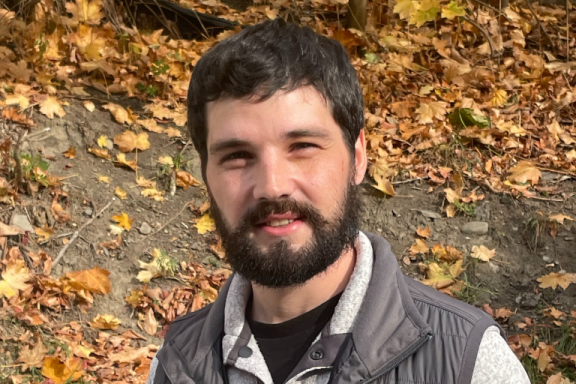Get Help
If you or a loved one needs help now, our caring staff are available. Reach out today.
Donate
Join us in making lives better.
Sign Up for Our Mailing List
Tim grew up in the suburbs of Boston. He had a sister, two loving parents, lots of friends, and played hockey, baseball, and football. Life was good.
During his junior year, Tim started going to parties and smoking pot. “And then opioids swooped into town. Everyone talked about how bad drinking and pot was — nobody talked about pills. Before I knew it, I was hooked.”
Tim graduated high school — and spent the next ten years addicted to opiates.
“It was a really sad, dark period of my life. All I cared about was getting pills. I was a walking corpse,” remembers Tim.
Tim lost his driver’s license for five years. He spent six months in jail. Some of his friends died.
“The addiction takes a toll on you. I had no self-love, no self-worth,” remembers Tim. “I tried to quit, but coming home to the same house, in the same neighborhood, surrounded by the same friends — the drugs always pulled me back in,” says Tim.
Until one day, at age twenty-seven, Tim reached a breaking point. “I was just done. I wanted to stop killing myself. I wanted my life back.”
Tim arrived at Channing House — Advocates’ addiction recovery home for twenty men — with nothing but the clothes on his back. “My shoes were dirty, I had no money, and my brain was stunted,” he says.
Channing House operates on the Social Model of recovery, where residents live together in a sober environment, offer each other support, and hold one another accountable. “The men run the house. They cook the meals. They clean the house. They have house meetings to handle conflicts,” Tim explains. “For the first time, I was accountable for my own life.”
During their stay, residents reflect on their past and think about what is working in their life. They talk about the changes they want to make. They make amends and explore employment, housing, and healthcare.
Tim graduated after ten months. “I learned how to keep a job, save money, and take responsibility for my life. Now, I have confidence in myself. I’m more capable than I ever thought I could be.”
Tim worked at an Amazon warehouse after he left Channing House. But when he got the chance to return, he didn’t hesitate. Starting in direct care, he quickly advanced to the role of case manager.
Tim helps the men set goals and maintain their sobriety. He helps them find AA or NA meetings, coordinate medical appointments, and manage legal issues. He runs relapse groups and helps the men develop healthy coping skills.
“The guys have so much shame. I tell them to let it go. I tell them to stop beating themselves up. They are really good people who have lost their way,” says Tim.
Tim has been sober for four years. He has a son and is engaged to be married. On weekends he visits his parents — but never stays in the neighborhood long.
“I’m just like these guys,” says Tim. “We teach each other. We help each other stay sober.”
